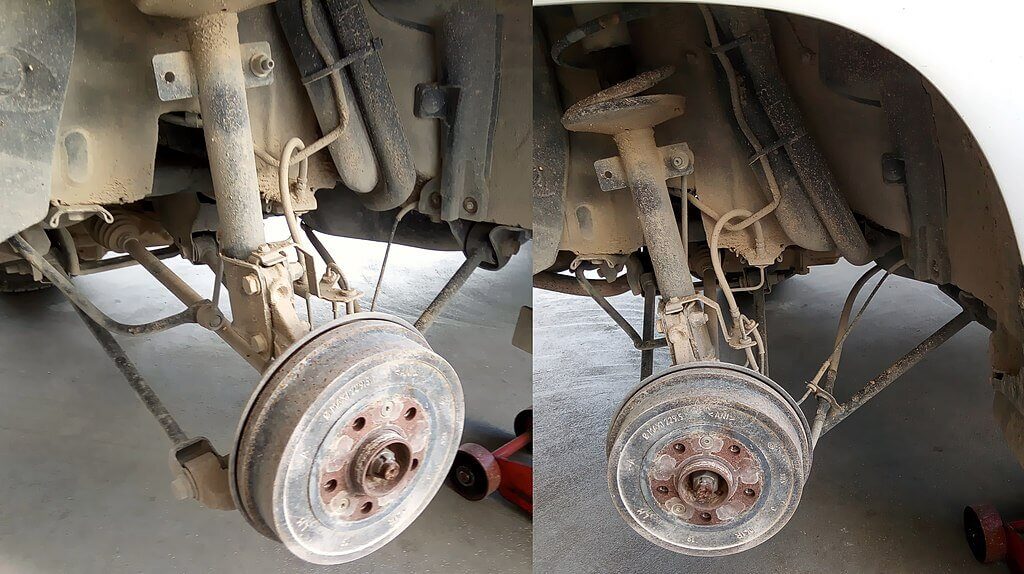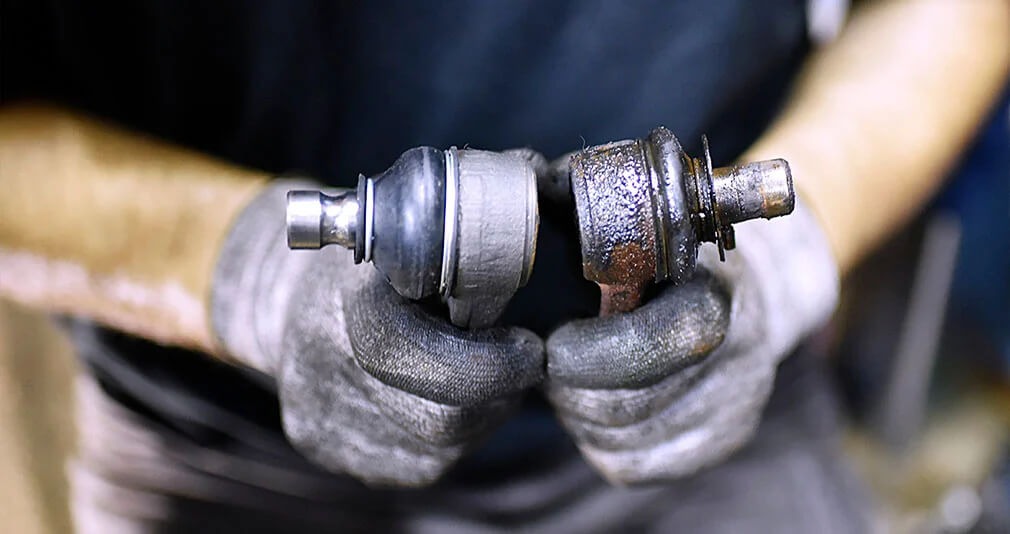Cars are a necessary part of our lives since they deliver wonderful driving experiences and offer comfort. But while driving over bumpy roads, potholes, and rocks, it is not common for a car to make clunking sounds. These sounds may be a sign of a suspension system issue with your car or any other issue. In this article, we will tell you the reasons why clunking noise at low speed occurs and methods to solve this issue.
Why Does the Noise Start to Happen?
In short, the answer to this question is most likely your suspension. Several parts could be contributing to the noise, including steering stabilizers, shocks, and arm bushings.

However, other potential reasons could include worn-out wheel bearings that create excessive friction and produce the clunking sound, or front brake rotors that are slightly uneven and require repairs. All of these usually happen due to significant wear and strain, leading to certain parts experiencing deterioration in condition.
6 Causes of Clunking Noise When Driving The Car
Here are some of the reasons that cause a knocking sound while driving slowly:
1. Low or Old Transmission Fluid:
A suitable amount of lubrication is required from the transmission fluid to empower smooth gear shifts. Insufficient cooling and lubrication occur when the fluid is too old or the level is too low. To check if this could be the issue, look at the fluid’s appearance and level. The liquid should have a reddish-pink color and be transparent. If it is instead cloudy, dark, or brown, it could be old or burned, or it could have been contaminated.
2. Improper Shock Absorbers or Suspension
If your car makes clunking noises when you drive over potholes or speed bumps, there might be a problem with the shock absorbers or suspension. You should stop driving the car if this issue occurs
3. Problematic Ball Joints
Your car’s wheel hubs are connected to the other suspension components by ball joints. A car might have one or two ball joints, depending on the type. The ball joint or joints may or may not support weight.

When it is harder for you to drive your car in a straight line, you will know that a ball joint is starting to fail. When traveling straight, you can hear a clunking sound, and the front wheels will be the source of the noise.
4. Problems with the Brakes
When you put on the brakes, a stuck brake caliper, an unusually loose wheel bearing, or worn-out steering parts could be the cause of the clunking sound. For your car to operate effectively each of these parts is necessary. However, your car’s brakes are the most crucial component when it comes to safety. Thus, if your car makes clunking noises when you apply the brakes, take it to the closest auto repair shop right away to have it fixed.
5. Poor-Quality Tie Rods
When you accelerate, you will certainly hear a clunking sound. However, this sound is also audible at moderate speeds when turning. If this is happening to you, there might be an issue with your tie rods. When they have issues, they will make noise at the joints and connections. This is what’s making the clunking sound you’re experiencing.
6. Damaged or Worn-Out Shock Absorbers
As the wheels roll over the road, they absorb the impact of bumps. Thus, they reduce the discomfort of driving on bumpy surfaces. You will hear a variety of noises coming from the underside of your vehicle as they start to break.
Similar Posts:
- Problems After AFM Delete
- Mini Cooper Drivetrain Malfunction
- Duramax Mass Air Flow Sensor Problems
- Clutch Pedal Sticks To Floor Sometimes
- What Causes No Spark To The Spark Plug?
How to Stop Clunking Noise? 4 Easy Fixes
Here is how you can stop the clunking sound of the car:
1. Determine What’s Causing the Noise
If you identify the cause of the clunking noise, you can easily stop it. If the issue is as easy as loose lug nuts, you can tighten them to solve the problem on your own.
2. Hire a Skilled Technician to Repair the Vehicle
However, you will require a skilled mechanic to fix it if the issue was caused by worn-out or damaged steering, suspension, ball joint, brake components, or any of the other items.
Nevertheless, you’ll need a skilled mechanic to repair it if the problem was caused by worn-out or damaged steering, suspension, ball joint, brake components, or any of the other parts.
3. Reduce Your Speed on Smooth Surfaces
If you hear this clunking sound when braking, you should proceed only on smooth roads until you reach a car repair shop so that the problem may be looked at and fixed.
4. Go as Far as Necessary in the Car
When your car makes this unexpected clunking noise when braking at a slow speed while you’re driving, you never know how far it will go before a major issue arises. So, be very careful. Only drive the required distance in your car.
Final Thoughts
If your car makes a clunking noise when going slow over bumps, there might be a suspension problem. Or perhaps there are loose parts in your exhaust pipe. However, if you hear this unusual noise while taking turns, it might indicate a problem with your steering, damaged tires, wheels, or most likely broken wheel bearings. So, read this article carefully to learn about what causes this issue and how to solve it.


![[Fixed] Clunking Noise When Driving Slow – 6 Main Causes Clunking Noise When Driving Slow](https://carstale.com/wp-content/uploads/clunking-noise-when-driving-slow-1024x457.jpg)